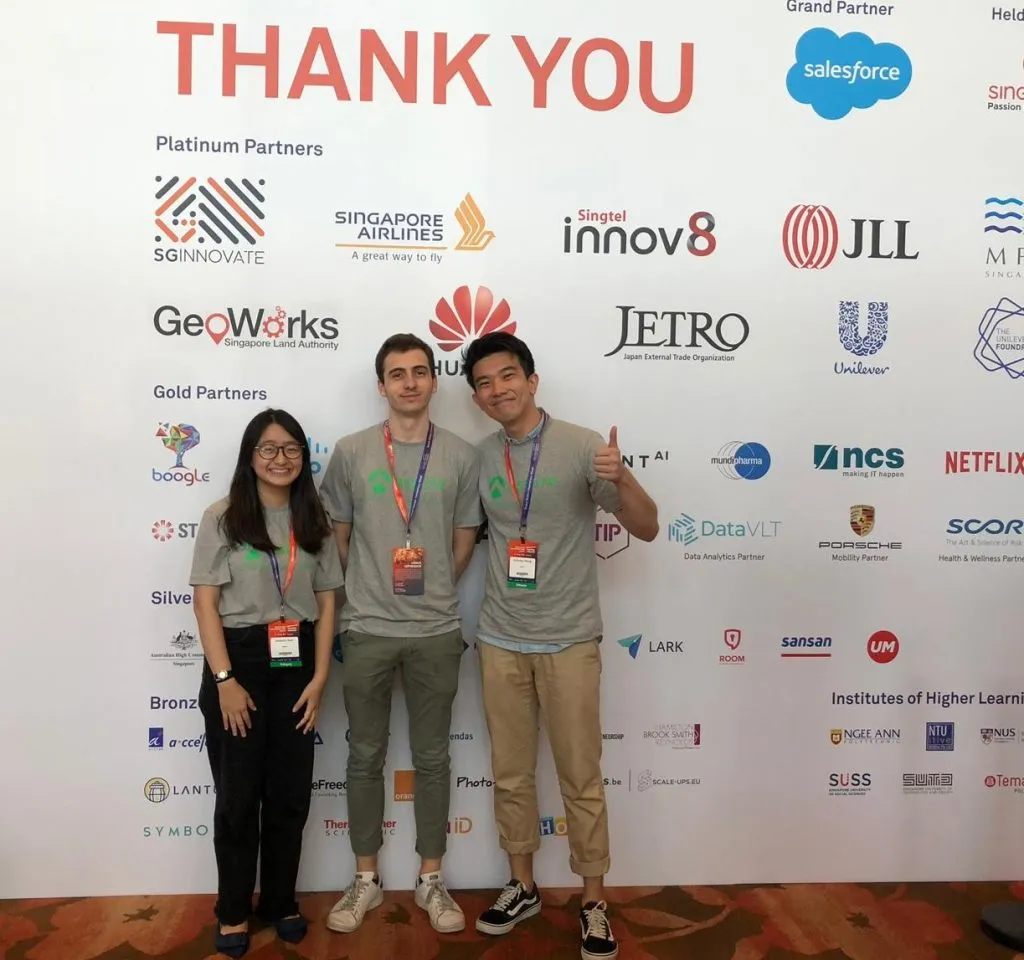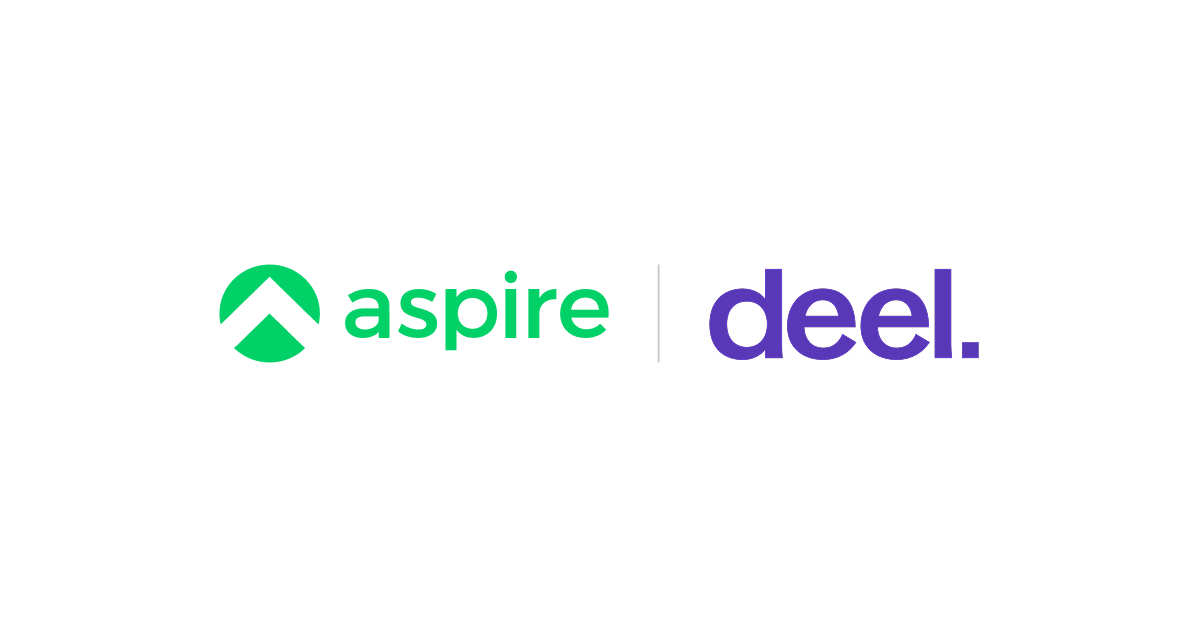Summary
This year, Aspire had the privilege of attending Innovfest Unbound, Southeast Asia's largest innovation festival. As entrepreneurs, we met other passionate representatives from the region's finest tech companies. As a FinTech startup, we learned what's coming up next in the finance space. Moreover, how we can be a part of that change.
Here are some of our insights from Innovfest Unbound 2019, and the inside scoop on the FinTech trends that'll make a difference:

Incoming Innovation
What are some of the key disruptive themes emerging in the financial services sector? In the words of Mr Richard Teng, CEO of the Financial Services Regulatory Authority at Abu Dhabi Global Market, "We're seeing hype translating into reality."
With Facebook's latest announcement of its Libra cryptocurrency project, Mr Teng notes that we're observing "the use of blockchain-enabled digital assets to enable instantaneous transmissions". And all this among other innovations in Artificial Intelligence (AI), global technology stacks, and the API economy.
We're going to forget "financial services" as a term altogether.
Sopnendu Mohanty Chief FinTech Officer , Monetary Authority of Singapore (MAS)
Sure, these are all cool and exciting developments, but it might be a little dense for the average Joe. What exactly does this mean for the broader FinTech sector?
Mr Sopnendu Mohanty, Monetary Authority of Singapore's Chief FinTech Officer, envisions an even more dramatic shift in the sector. "We're going to forget 'financial services' as a term altogether." In its place, he predicts "a broader integrative service" built on foundational FinTech infrastructures. This integration will facilitate hitherto disparate functions like identity verification, payment, trusted data... the list goes on.

FinTech Integration
But what does this means in more tangible terms? From his vantage point in MAS, Mr Mohanty acknowledges: "In such a highly interconnected, digital world, consumer demand has shifted. We have to start from the premise [of what is] for the greater good of people." And according to Mr Mohanty, that means regulators and policy-makers need to adopt "FinTech-like thinking"— in other words, it's all about the user experience.
A case study close to home is PayNow, launched by the Association of Banks in Singapore (ABS) as part of Singapore's drive towards a cashless society. It's a convenient peer-to-peer funds transfer service, and requires just a mobile number or Singapore NRIC/FIN to send funds almost instantly. Financial services like PayNow were implemented with the simple purpose of making payments, well, simple.
Here's another regional example: India's Aadhaar national biometric system, which has achieved impressive results in financial inclusion. 300 million bank accounts have been added in the past three years. It is a process that's been facilitated by new business models built on the 'India Stack' of APIs. It's clear how FinTech innovation has the potential to enhance both consumer and business owner experiences, despite the maturity of the economy.
These case studies just prove Mr Mohanty's point on the pivotal role played by regulators in the FinTech sector. There's a need to "start building large public infrastructure that will reshape the future of financial services". It's the vision of a digital sandbox culture, at work even within the regulatory space... The intent is for "policy to become legacy instead."

all while operating within parameters of a shared vision and values.
Local Advantages
So here's the good news! Moving forward, we can expect government bodies and FinTech entities to work hand-in-hand. It is to develop our digital infrastructure as a nation. We can be part of the conversation by keeping our policy-makers and regulators accountable. In addition, by staying informed of the latest trends in the FinTech realm.
However, that's the big-picture. As users and consumers, entrepreneurs and business owners, it's easy to feel overwhelmed by the scope and scale of impending change. Also, it is easy to feel helpless in the face of swooping global and national trends, orchestrated overhead by "the powers-that-be". With cautions about the “Splinternet,” monopolies of Big Tech, the dangers of data theft and privacy invasion... what does this mean for our local communities? What can we do?
There's the need for local content, local reach, local knowledge.
Richard Teng
CEO, Financial Services Regulatory Authority, Abu Dhabi Global Market
Local insight
According to Mr Teng, more than we might think. After all, there's still "the need for local content, local reach, local knowledge". For inspiration, look no further than just last year for Singapore's own underdog success story. It was the battle of the century: between Singapore-based startup Grab, and ride-sharing behemoth Uber... and Grab sent Uber packing out of Southeast Asia.
For Grab co-founder Ms Tan Hooi Ling, the "hyper-local approach" was important to cater to local needs and cultures in each SEA market. A consideration a global company "sometimes takes for granted". Grab had employees on the ground interacting with local customers, and could eke out a competitive advantage by capitalising on its nimble size and regional focus.
It's the classic David and Goliath story, and a powerful reminder to all homegrown companies with humble beginnings. As Mr Teng points out, don't forget the importance of "local knowledge and content" in standing up to global giants— and emerging victorious.

by wielding local knowledge and strategic targeting.
Local community
From us here at Aspire, we'd like to offer our insight on how we can make a difference: By tapping on local business communities, and playing to our niche capabilities.
No man (nor entrepreneur, for that matter) is an island. This perhaps reads ironic, for all that Singapore's an island nation... but our humble island boasts a rich and diverse FinTech ecosystem that belies its size.
Innovfest Unbound 2019 was an apt reminder of that potential. As we met one talented entrepreneur after another, it was clear just how much our local community is brimming with new ideas, new dreams, and new ways to make them happen. And for us, it was a humbling reaffirmation of our own vision as a FinTech startup: to serve, and work alongside, other SMEs and small businesses.

We're proud of how far our FinTech economy has come; let's collaborate to bring it further. By playing on our respective strengths, we can fill existing gaps. By building collectively beneficial networks, we can forge powerful synergies.
Events like Innovfest Unbound bring us together; it's up to us to stay together. We might be young— as a country, as a startup hub— but as partners and as an ecosystem, we can help each other grow.
Psst… you might also be interested in:
What FinTech Means for E-commerce
When Should You Get a Business Loan?
Aspire was founded to provide small business owners with funding solutions – no long waits, paperwork, or hidden fees. Apply online to obtain a revolving credit line of up to SGD$150,000 to unlock your business potential.










%201.webp)


.webp)